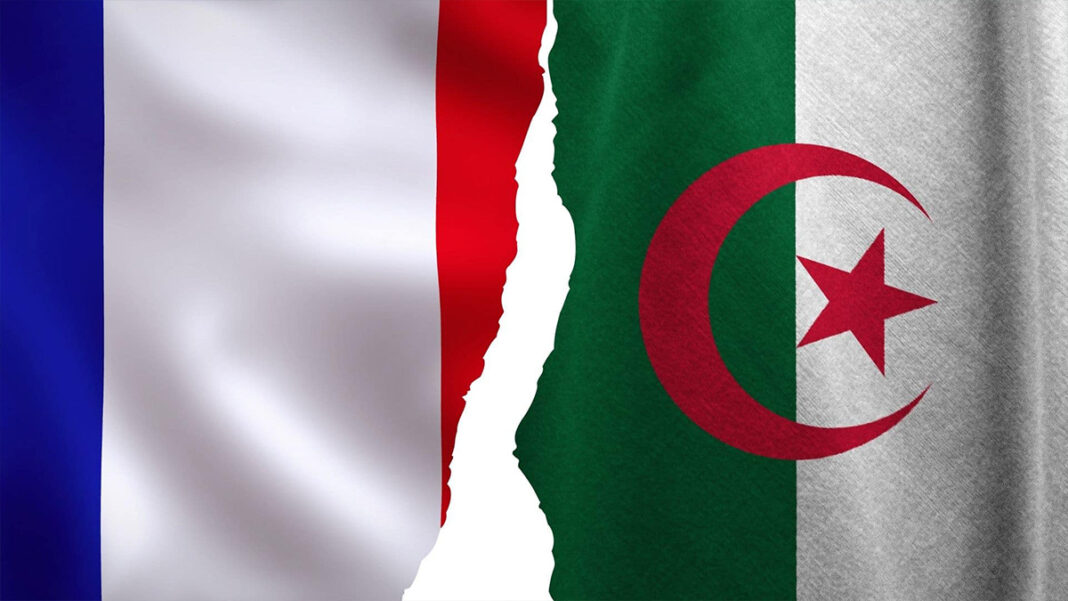The Influence War: Are Our Streamers and Influencers at the Heart of Geopolitical Issues?
Is the modern influence war between nations now in the hands of our favorite streamers and influencers? After a painful and chaotic history, France and Algeria, whose destinies have always been closely linked, are once again at the center of diplomatic tensions. France, increasingly sensitive to issues related to internal security, has recently expelled several Algerian influencers who crossed the line.
A Complex Historical Context
France colonized Algeria in 1830. Algerians gained independence in 1962 after a liberation war that left scars on both sides. Subsequently, France became the primary host country for Algerians. The destinies of the two nations remain intertwined.
In the 1990s, while civil war was raging in Algeria between Islamists and the government, the Armed Islamic Group (G.I.A.) struck in France. In 1995, they planted a bomb at the Saint-Michel metro station in Paris, marking one of the first jihadist attacks on French soil.
France has often been accused of interfering in the internal affairs of its former colonies. The term “Françafrique” illustrates this criticism, particularly in sub-Saharan African countries where the franc CFA was long seen as a tool of influence. However, this perception has been steadily declining.
France – Algeria: Commercial and Diplomatic Tensions
The “El Mojdene” Case
The chestnut-based spread “El Mojdene” achieved massive commercial success in France, particularly among the Algerian diaspora. However, the European Union recently banned the product due to the presence of a dairy agent that did not comply with strict EU regulations. While this ban drew criticism from consumers, it remains legally justified.
Economic protectionism is prevalent in many countries. In France, it became apparent as early as the 2000s, particularly with figures like Arnaud Montebourg, who promoted “economic patriotism”. In the United States, similar measures have often been used to restrict the import of European products. Under the administration of Donald Trump, protectionism shifted from being subtle to overt, with tariffs reaching 25% on some European goods.
The Western Sahara Issue
The issue of the Western Sahara has heightened tensions between France and Algeria. In 1975, Morocco annexed the territory after Spain withdrew. Since then, Algeria has supported the Polisario Front, which seeks independence for the Western Sahara. Meanwhile, Morocco has proposed an autonomy plan since 2007.
In July 2024, French President Emmanuel Macron sent a letter to King Mohammed VI of Morocco, stating that “the present and future of the Western Sahara fall within Moroccan sovereignty” and reaffirming “France’s clear and unwavering support for Morocco’s 2007 autonomy plan.”
In response, Algeria recalled its ambassador to Paris and pledged retaliatory measures. This diplomatic crisis reflects deep divisions over the Western Sahara issue.
Diplomacy 2.0: When Influencers Become Political Tools
Since early January 2025, several Algerian influencers and a Franco-Algerian have been arrested in France for posting videos containing hateful or violent content, often targeting opponents of the Algerian regime.
Youcef A., also known as “Zazou Youssef”, was arrested in Brest for posting a video calling for attacks in France and violence in Algeria. He is currently in pre-trial detention and is expected to stand trial for promoting terrorism.
In another case, “IMAD Tintin” posted videos inciting people to “burn alive, kill, and rape on French soil.” Such remarks, described as unequivocal, leave no doubt about their illegal nature.
“Doualemn”, arrested in Montpellier, called for the torture of an opponent of the Algerian regime. An attempt to deport him to Algeria failed, as the country refused to accept him, exacerbating diplomatic tensions with France.
Increased Vigilance Against Extremist Content
These incidents are unfolding in a tense diplomatic context, particularly linked to the Western Sahara. France has increased its vigilance against content inciting violence on social media and has intensified the arrests of influencers whose rhetoric crosses legal and ethical boundaries.


